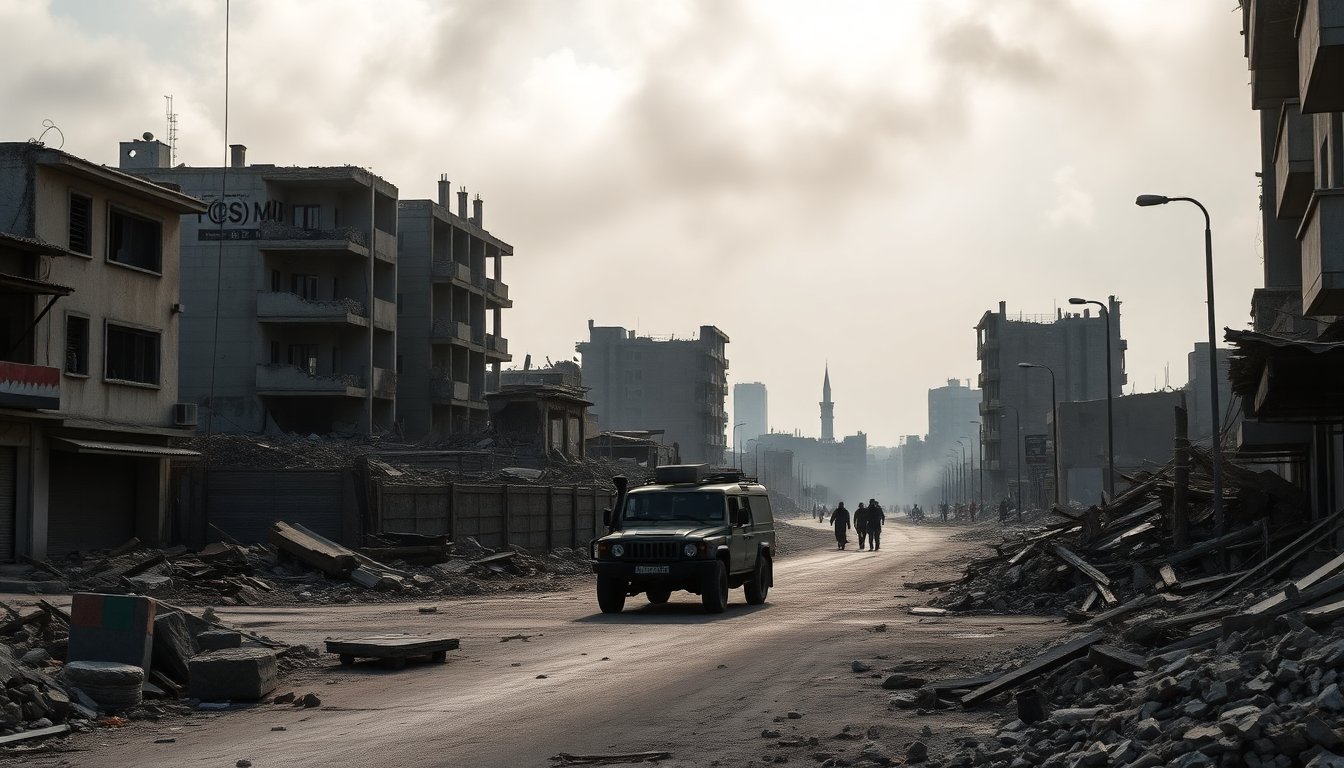Table of Contents
On Thursday, the situation in Gaza escalated as Israeli forces advanced significantly into Gaza City. This development coincided with Prime Minister Benjamin Netanyahu’s visit to New York, where he was scheduled to address the United Nations General Assembly. Concurrently, U.S. President Donald Trump was working towards a potential resolution to the ongoing conflict.
Local health authorities reported that Israeli airstrikes resulted in the deaths of at least 19 individuals within Palestinian territories. Among the casualties were 11 members of two families in Zawayda, a town located in the central Gaza Strip, where a residential building was targeted.
Military operations and humanitarian impact
The Israeli military has not provided details on specific incidents but reported a comprehensive operation that struck 170 targets across Gaza in a single day. The military characterized these strikes as efforts to dismantle terrorist infrastructure utilized by militant organizations to launch attacks against Israeli forces. Their presence in Gaza City forms part of a broader strategy to dismantle Hamas, especially following the group’s deadly assault on Israel.
This military action has not only targeted Hamas but also inflicted severe damage on civilian infrastructure, leading to a dire humanitarian crisis. Many civilians remain trapped in Gaza City, facing relentless bombardment with little hope for safety. Netanyahu described Gaza City as the last stronghold of Hamas, while countless civilians find themselves with no means of escaping the violence.
International diplomatic maneuvers
In light of these developments, U.S. envoy Steve Witkoff expressed optimism about achieving a breakthrough concerning Gaza soon. This follows Trump’s introduction of a detailed 21-point peace plan aimed at addressing Middle Eastern tensions to leaders from predominantly Muslim nations in New York.
Trump assured Arab leaders that he would prevent Israel from annexing the West Bank, an area Palestinians envision as part of their future independent state alongside Gaza and East Jerusalem. However, Netanyahu has consistently maintained a hardline stance, asserting that a Palestinian state will never exist.
Global reactions and Palestinian response
As the conflict unfolds, an increasing number of countries, including the United Kingdom, France, and Canada, have publicly recognized Palestinian statehood. This recognition has intensified diplomatic pressure on Israel, which faces increasing isolation on the international stage. Palestinian President Mahmoud Abbas addressed the United Nations General Assembly via a video message after being denied entry to the U.S., expressing gratitude towards nations acknowledging Palestinian sovereignty.
In his address, Abbas reiterated the urgent need for a permanent cessation of hostilities in Gaza. Meanwhile, Netanyahu is set to speak at the General Assembly and will engage in discussions with Trump next week, focusing on strategies to combat Hamas and secure the release of hostages taken during the October attack.
Casualties and the ongoing crisis
The human cost of the conflict is staggering; approximately 1,200 Israelis lost their lives during the Hamas-led attack, with 251 individuals taken hostage. Current estimates suggest that around 48 hostages are still held in Gaza, with 20 believed to be alive. The ongoing Israeli military operations have reportedly resulted in over 65,000 Palestinian fatalities, according to local health authorities.
In light of these events, Hamas’s military wing has cautioned the Israeli military that any further expansion of their operations in Gaza City could jeopardize the lives of the Israeli hostages. Conversely, the Israeli military has urged residents of Gaza to dissociate themselves from Hamas to help bring an end to the conflict.


